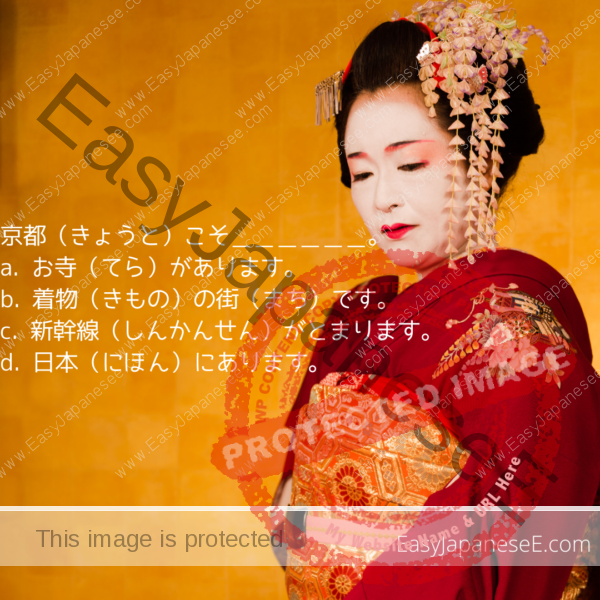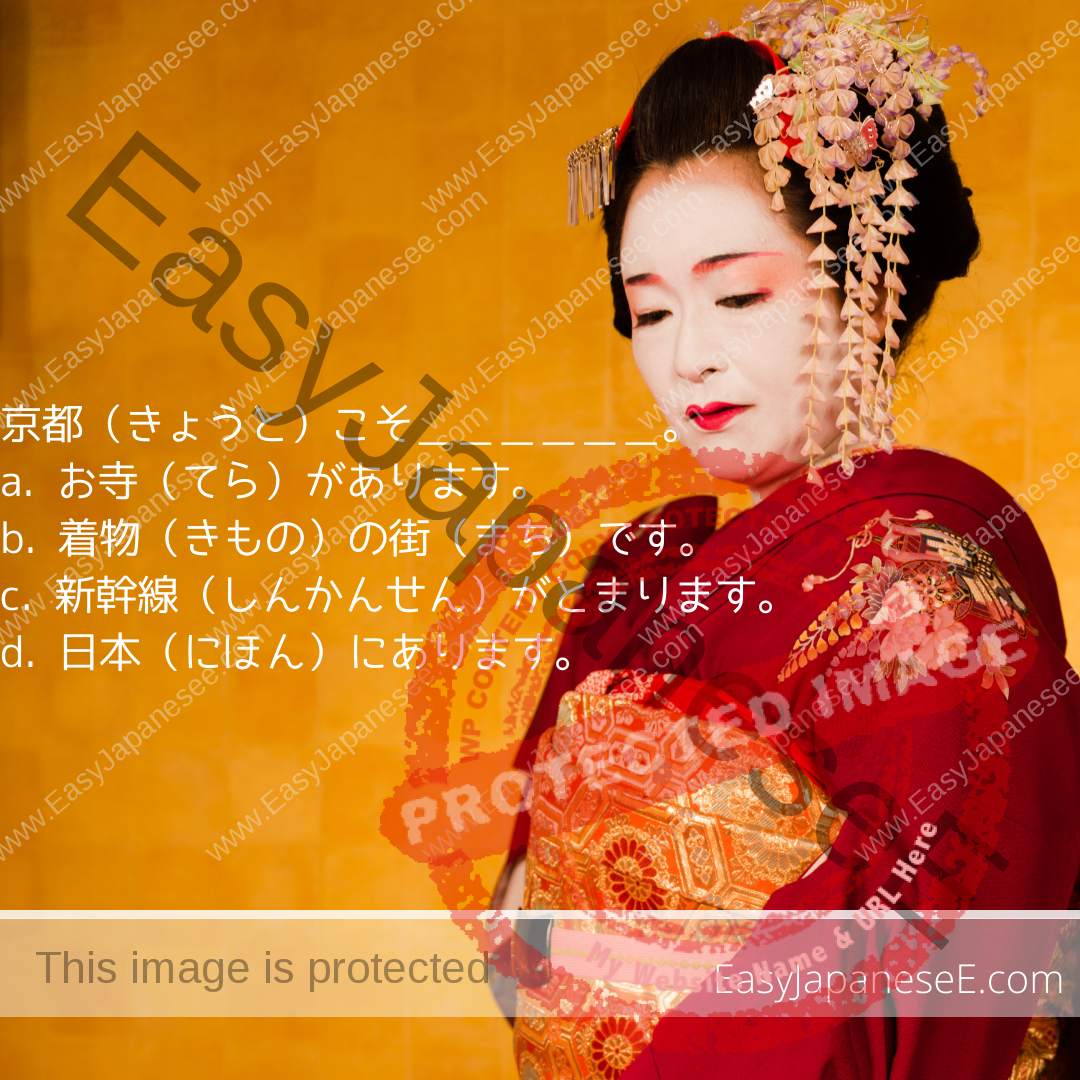
Today’s Question
京都こそは________________。
- お寺があります。
- 着物の街です。
- 新幹線がとまります。
- 日本にあります。
Today’s Grammar Point: ~こそ
~こそ is an expression for emphasis. It emphasises someone/something by selecting him/her/it over others. こそ is often used:
in a set expression
- こちらこそ – me, too / そちらこそ – you, too
- 「先日はありがとうございました。」「いいえ、こちらこそ」
“Thank you for the other day.” “The pleasure was MINE.”
- 「この間は大変だったでしょう。」「いいえ、そちらこそ」
“It must have been hectic the other day.” “I bet you were too.”
- 「先日はありがとうございました。」「いいえ、こちらこそ」
- それでこそ – That’s why (… is called) ….
- それでこそ、エマさんだ。That’s just like Emma. (That’s why Emma is called Emma.)
- それでこそプロだ。 That’s why he is called a professional.
Emphasising the topic/subject of the sentence
The topic/subject of the sentence is usually marked by the particles は or が and こそ often replaces them but if the emphasis is strong こそ can be used before は or が.
私こそ、謝らなければなりません。
It is I, not you, who must apologise.エマさんこそが適任です。
It is Emma who is suitable.音楽を聴くことこそが一番のストレス解消法です。
It is listening to music that relieves my stress in the best way.
If you want to bring an action before こそ, you need to use “[dictionary form verb] + こと.”京都こそは着物の街です。(Today’s Question Sentence)
Kyoto is the city of kimono.
Emphasising a time phrase for a future
今日こそ宿題を終わらせる!
(I haven’t been able to finish it yet but) I’m going to finish my home work today!あしたこそ、晴れますように。
(we have been having rainy days for a while but) I hope it will be sunny tomorrow (finally).今度こそはうまくやります。
(I failed before but) I will really do it this time!
Emphasising a reason in the form of [plain form] + からこそ
私は日本人です。だからこそ、できることがあるはずです。
I’m Japanese and for that very reason, there must be something that I can do.花は散るからこそ美しいんだよ.
Flowers are beautiful all the more because they die soon.祖母が作ってくれたからこそ、おいしかったんだ。
It was delicious all the more because my grandmother made it for me.
こそ can be used with a てform or ばform verb but those usages are a bit more advanced. I will leave mentioning them to a later time.
Answer to Today’s Question: 2
- お寺があります。There are temples.
- 着物の街です。It is a town of kimono.
- 新幹線がとまります。Shinkansen trains stop.
- 日本にあります。It is in Japan.
~こそ emphasises someone/something by selecting him/her/it over others. So whatever follows こそ needs to something very unique to whatever is being emphasised. There are other cities with temples where shinkansen trains stop in Japan but there are not many cities where kimono means so much to them. So, 2 is the most unique description.

